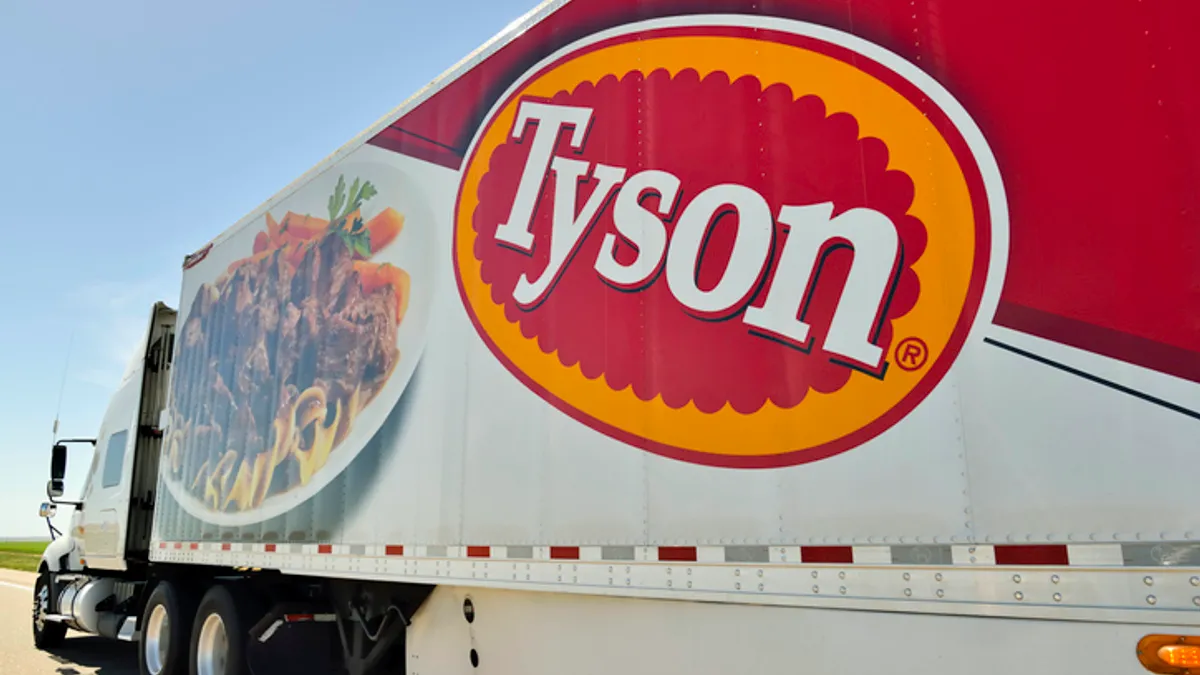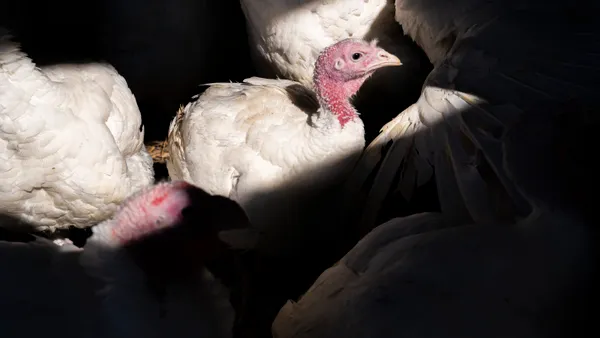Dive Brief:
- Missouri’s chief legal officer is calling on Tyson Foods to sell two of its poultry plants expected to close later this month, saying the factories “are critical to local communities.”
- Attorney General Andrew Bailey wrote in a letter to the U.S.’ largest poultry producer this week that antitrust law compels the company to make every effort to market the factories, including to a competitor.
- Tyson announced in August that it would close plants in the rural communities of Dexter and Noel, where the meatpacker is the largest employer. The company has closed at least six plants across multiple states in an effort to cut costs.
Dive Insight:
Tyson’s planned closures have prompted swift backlash from local and federal officials, who warn of devastating consequences with the loss of jobs in the rural communities that depend on them.
“Closure will have ripple effects that will harm more than just the individuals who would lose their factory jobs,” Bailey wrote in his letter. “How can a restaurant or grocery store in a town of 2,000 people expect to stay open when 1,500 people lose their jobs? What will chicken farmers and grain growers do if the plants they have long relied on close?”
Missouri U.S. Sen. Josh Hawley introduced a bill shortly after Tyson’s announced closures to “break up giant meatpacking and poultry monopolies.” The next day, the senator said he spoke with Tyson CEO Donnie King, and that the company is willing to sell the Dexter and Noel facilities.
“We will hold him to these commitments,” Hawley wrote Sept. 15 on X, formerly known as Twitter.
A Tyson spokesperson said in a statement to Agriculture Dive that the company remains “open to receiving all offers” for the plants.
“Our number one priority is supporting impacted team members and growers ahead of the plant closings,” the spokesperson said.
Tyson joins other major meat companies in announcing recent layoffs or closures as the industry grapples with middling demand and climbing production costs. In August, Smithfield announced it would shutter 35 hog farms in Missouri.
In a letter to Tyson this week, Bailey said that beyond potential legal liability, selling the factories “is simply the right thing to do.”
“It is vital to the people of Missouri whose livelihoods depend on these factories that Tyson works to ensure that these plants remain open,” he wrote.











